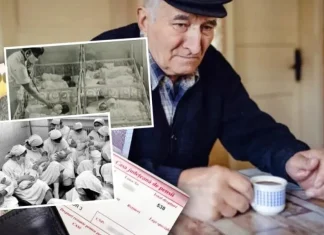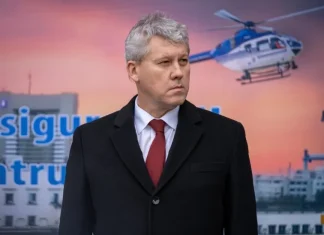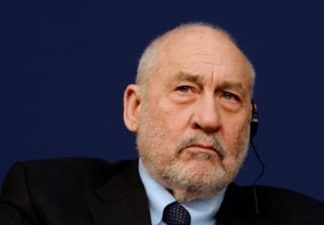The GOLD Institute will publish a series of reports with monthly and short-term rhythmicity, in case of significant events, regarding internal or external political environments. The data subject to the analysis are provided from public sources of information, internal sources from political parties, published or discrete research of some public opinion polling institutes (CURS, Sociopol, Avangarde, INSCOP, INSOMAR).
Internal status of parties and presidential candidates (PSD and PNL, February 2023)
PSD
1. Recent evolution during 2022 PSD evolution was linear, without major fluctuations in public support, as a result of strengthening internal cohesion and good administration of public communication. The presence in the government, but without taking on its symbolic coordination, offered the PSD the possibility to feed with government funds the local administrations it has in coordination, respectively it exempted the party from accumulating a major negative liability in the public perception. The governance with PNL, of the ‘co-pilot’ type, ensured the PSD and the neutralization of the main critic, in the person of President Klaus Iohannis, and the directing of the mutual attacks with the PNL-ists, operated from the spring of 2022, also worked to the advantage of the pessimists’ perception. Towards the end of last year, through an unintentional and publicly imposed decision, Klaus Iohannis tried to dynamize the PSD’s course by eliminating from the Government the Minister of Defense Vasile Dîncu. Using a non-reactive technique, specific to judo or aikido contact sports, PSD managed to diminish the public impact of the blow, but thus the design of a future pole of internal dissent in the party was obtained, which will be built around the former minister of Cluj. The appearance of Mircea Geoană in the internal political game is another destabilizing element, but outside the party, which has begun to test its endurance under the specter of a future presidential candidacy, suggested as being supported by the US (from the Pentagon level), thus functioning implicitly as a means of strong pressure on the PSD decision.
2. The current internal state
From the point of view of public perception, the PSD appears as the party with the least problems of internal cohesion, and this is due to the significant political experience of the national and county leaders, who have learned to administer their conjunctural dissensions in a colloquial-discrete way. The inherent struggle between the peasants for power and influence on the governmental actions, together with the interests of being involved in the internal party decisions of the secret services groups (SRI, SPP, SIE, DGIA) or of the newly emerged ” Reserve Division ” (Division R), have generated the emergence of three camps in the PSD, which dispute and contest each of their authority in private meetings, but far away from public perception (for now). The dominant camp is led by Marcel Ciolacu who, benefiting from the public authority of the party president, traditionally undisputed in the PSD, fluidly imposes his internal decisions or those regarding the government. The consolidated relationship that Ciolacu has with the current leaders of PNL and UDMR, plus the explicit support from some secret service heads, respectively the media support generated by the party contracts, assures the PSD leader for the moment. At the same time, however, precisely from the privileged collaboration with Hunor Kelemen and UDMR there are also serious vulnerabilities for Ciolacu, both in relation to PNL, dissatisfied with these PSD-UDMR pliers in which he is caught, but also inside the PSD, where the dissatisfied understand that the party leader uses the game with the UDMR to justify his failure to fulfill their wishes. The second camp is leading the first-time President Gabriela Firea and Secretary General Paul Stănescu, who are trying to accumulate more influence at the level of local organizations, positioning themselves for the moment as a silent reservoir of dissent, for those who consider themselves wronged by Marcel Ciola. This camp is also based on the support of former or current deputies from the SRI, respectively that of the SPP chief, who thus supports a dissent movement that Klaus Iohannis is interested in. The third camp was recently set up, around Vasile Dîncu, the president of the National Council of the PSD, and it is noticed and consolidated based on the anti-Iohannis public message. In this camp is distinguished the meteoric presence of PrimeVice-President Sorin Grindeanu, who sweeps in a conjunctural way, coming from the Ciolacu team. This camp benefits from the consistent support of the R division, with George Maior and Florian Coldea included, as well as some operative heads of the secret services, who thus make their usual dissent game against the civilian directors, but this support seems to be conditioned by a future purpose of the PSD’s split, in which the ones listed above are interested with the aim of constructing another common political allience, formed by USR, Reper, the Force of the Right.3
. Presidential candidates
Today there are three assumed candidates with a presidential profile and potential in PSD, Marcel Ciolacu, Gabriela Firea, Vasile Dîncu, respectively one with reserve status, in the person of Mihai Tudose (Alexandru Rafila seems to have lost his relevance, from this point of sight). The average scores of public or internal sociological research today indicate Gabriela Firea as the leader in the public trust chapter, the actions and measures operated from the position of Minister of Family and Youth being visibly dedicated to the consolidation of this position. Marcel Ciolacu disputes the second place with Vasile Dîncu who, after an involution generated by the relatively confused and unpopular administration of the Defense portfolio was propelled even by Iohannis’ action against him. Dîncu understood this, and through his acid and rhythmic criticisms of the president, he wants to make this corridor that was offered to him in a conjunctural way fruitful. Mihai Tudose wisely assumes the reserve position for the time being, standing at a consistent level of public trust, which he will be able to use as a basis for upward evolution if given the opportunity. Mircea Geoană represents a candidacy not assumed by the PSD, his trust score for the PSD public being today below the four listed above. However, in the last year, Geoana has built a support structure that is composed of personalities from the academic or business circles, even former local leaders of the PSD and, relying on the almost explicit support of the Americans, who came into office he has in NATO, he hopes to be able to turn in his favor the PSD’s nomination decision, without which his candidacy will be rated at an irrelevant level.
The evolution of the internal competition between those mentioned today points to Vasile Dîncu as the protagonist who, in addition to the consolidated status of an intellectual, which was not damaged by the mandate at MAPN, also has the benefit of the singular anti-Iohannis positioning, which is predictable to be radicalized. Gabriela Firea, although she is well supported at the level of Secretary General Paul Stănescu, will lose speed due to already announced (according to sources) scandals that will catch up with her and will affect the Public Prosecutor’s Office, to which the avatars of the front will be added open with Nicușor Dan and his strong supporters. Marcel Ciolacu is even constrained by his positions as party president and leader of the governing Coalition, and if he wants to widen his public support base, he will have to resort to positions such as the suspension of Iohannis or explicit actions against the excesses of the External Factor, which are possible, but unapproachable for him, at least for the time being. Mircea Geoană can also gain more relevance, generated precisely by the fruition of Ciolacu’s statement regarding a PSD candidate from outside the party, but his electoral fate is still totally dependent on the fate of the war in Ukraine and the consolidation or lack thereof of the geopolitical authority of the Americans in the region.
(The PNL part of the report will be published in the coming days.)









